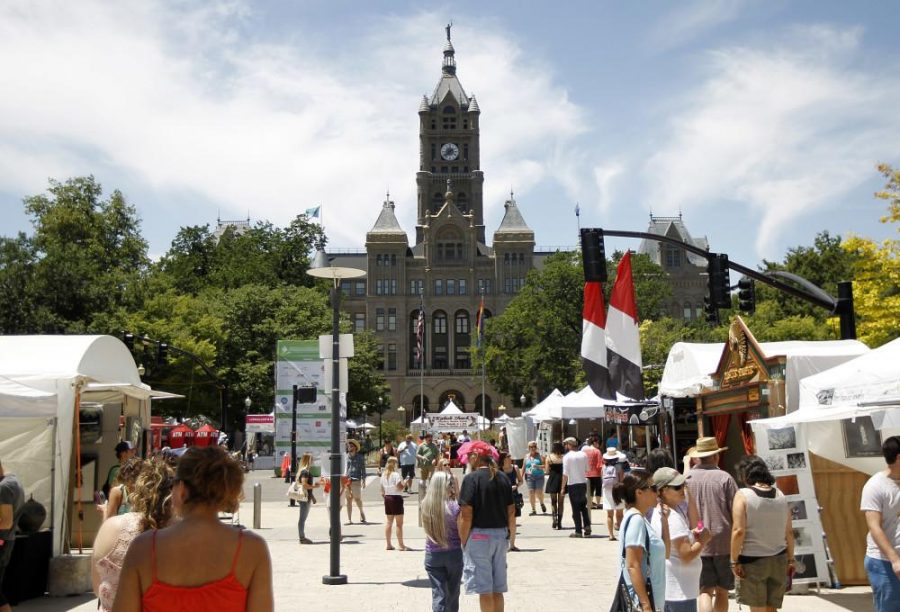“There is a whole other element of language that is felt when it is heard.”
These are the words of Alexandra Lindberg, a slam poet invited to present at the Utah Arts Festival. They fell in love with slam poetry a little over a year ago when they started writing about a breakup. From there they found a “landscape of art” which “[gave] back to [them] time and time again in ways that are unimaginable.”
Unfortunately, their experience at the Utah Arts Festival was not a part of this beautiful landscape, but a disappointing lesson in censorship and lack of courtesy.
This year’s arts fest showed poets just how little they are worth in the eyes of many. The festival cut their mics without warning, paid black poets less, misgendered and allowed audience heckling of poets. One of these poets, according to The Salt Lake Tribune, found himself facing event security despite winning an award for his work.
The Utah Arts Festival did not respond to requests for comment.
In Lindberg’s words, “Poets were misgendered, mics were cut at seemingly inappropriate times and poets were not properly compensated for their travel expenses.”
As Utahns, we might be used to censorship and our queer community constantly fighting ignorance, but I expected more from an event meant to celebrate art and artists of all kinds. Part of the cultural purpose of art is to stand as a voice among people, whether that voice is a mirror or a rally against the status quo.
“When the harsh censorship took place, it completely devalued not only the artists but the event as a whole,” Lindberg explained.
The event devalued the poets in other ways as well.
Lyd Havens was misgendered multiple times during the festival and they could never get a straight answer as to why. To misgender someone is to take away a piece of their identity. I would hope that we are past arguments of simple respect for a person’s change of pronouns by now.
When Havens tried to figure out why they were misgendered, they were told that it was their fault and were then given a string of confusing answers — ultimately leading to no conclusion and, more importantly, no apology.
“I … really wish there had been more compassion, both to me and every other poet mistreated. Again, really all we got were excuses and half-hearted apologies” Havens said.
“Slam poetry is all about open language, expression of self and connecting a community through art,” Lindberg said.
But how can art exist if it is beat into shape by ignorance and entitlement? The Utah Arts Festival didn’t exhibit any of these ideals this past year. Because of this mistreatment, some poets may not choose to return.
Havens is one such poet who was “appalled by the lack of genuineness coming from the organizers.”
Unless changes are made or some form of apology is made public, they will not return to Arts Fest and Utah will have lost the opportunity to listen to a unique artist.
Is it really so much to ask for your words and identity to be respected? Haven’t we already dealt with the idea of fair compensation as a right? And can audiences stop heckling black people anytime they speak an even slightly controversial sentence?
The Arts Fest needs to take responsibility and make some kind of reparations to these poets. Maybe if they faced the problem with love and understanding, those who were mistreated could do so as well. Under-compensating and disrespecting artists is not the way to build a lasting community.
In an interview with The Salt Lake Tribune, the festival claimed that it is going to work on improving next year’s experience for poets. It did not claim responsibility or apologize to the artists, however. When asked to explain its actions, its excuses were despondent at best. Additionally, the festival’s solution to censorship was a stricter list of taboo words and it failed to comment on a solution for misgendering poets or the pay gap between them.
Really, should we even go to the Arts Festival next year? Can Utah, as a community, support an event that doesn’t support our own community? Unfortunately, we cannot.


